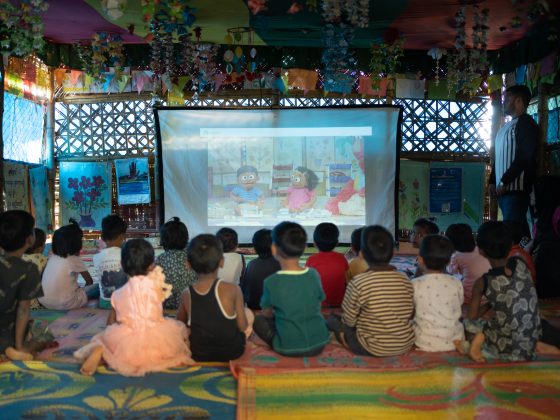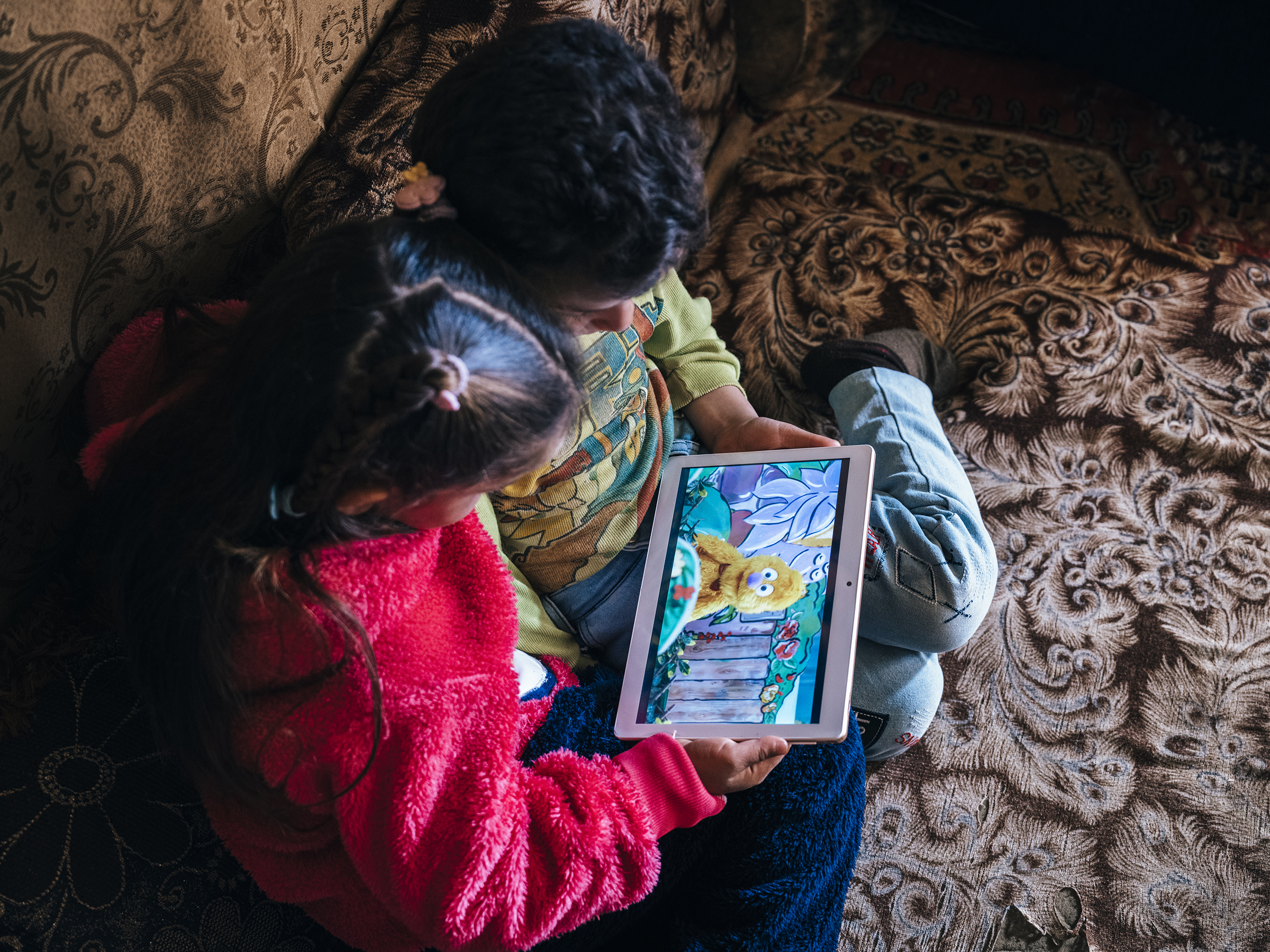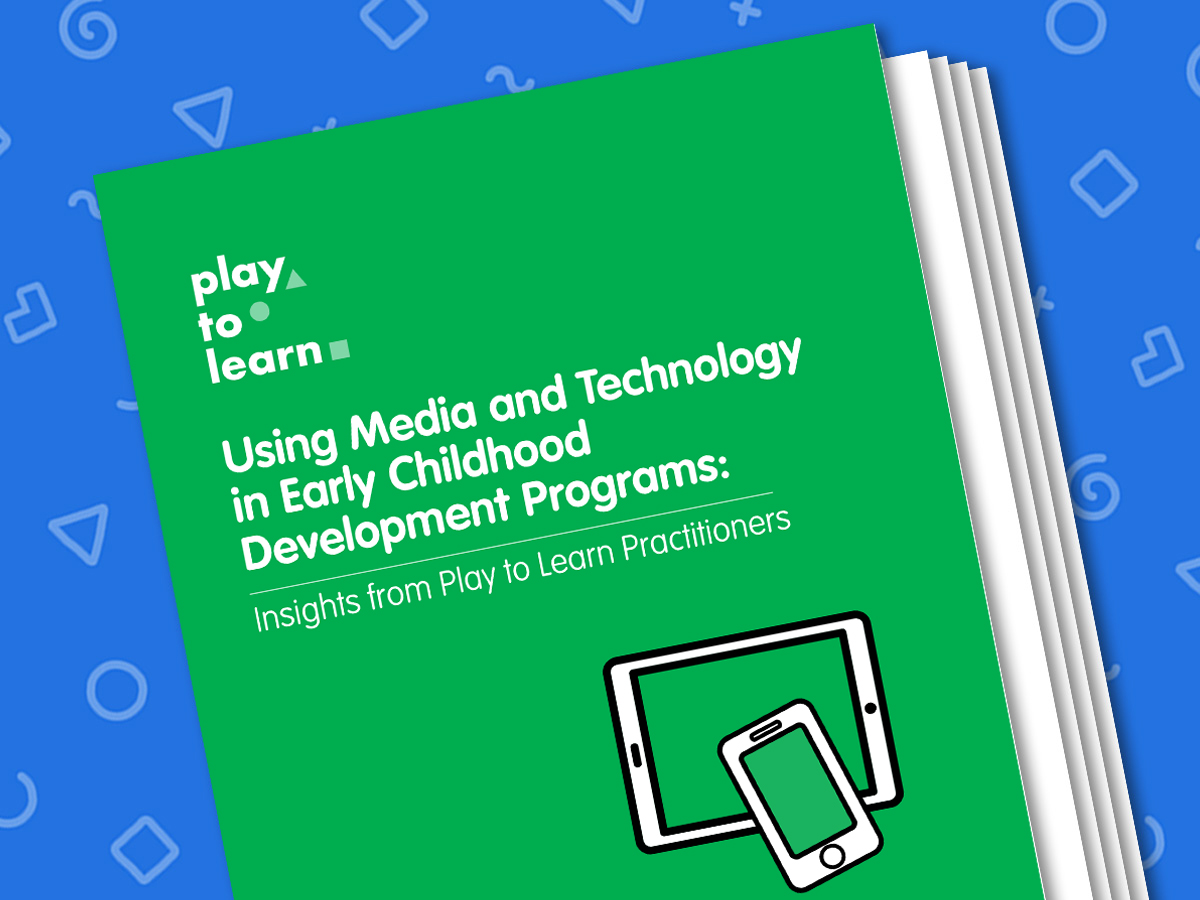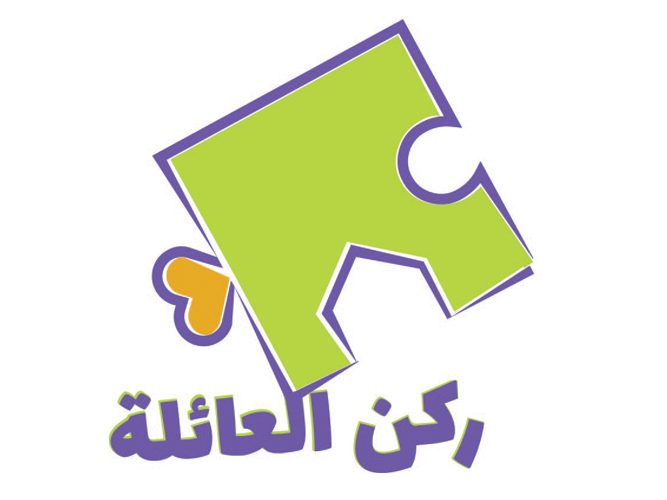Four key highlights emerge from Play to Learn’s practical experiences using media and technology in early childhood development (ECD) programs:
- Media integration can enhance ECD in emergencies (ECDie) by providing targeted, engaging content on specific topics.
- Technology can be a tool to access hard-to-reach populations.
- Diverse use of platforms, such as audio, video, and social media, can extend reach to new audiences with a variety of content.
- Media and technology can support the ECDiE workforce to improve program quality and fidelity.
Media integration can enhance ECDie programming by providing targeted, engaging content on specific topics.
Media can be used alongside or within education, child protection, or psychosocial programs to cover additional topics, engage children or adults remotely, or diversify program teaching and learning. Short videos or mass media episodes can be developed to teach complex concepts in culturally relevant, interesting ways. Sesame Workshop created a set of 140 animated videos called Watch, Play, Learn: Early Learning Videos, and integrated the content in three ongoing education, child protection, and community-based mental health interventions in Kenya, Bangladesh, and Colombia respectively to understand engagement and impact of educational media in humanitarian contexts.
Technology can be a tool to access hard-to-reach populations.
Devices such as mobile phones or tablets can be a critical access point to families in remote locations or on the move. As access to low-cost power, devices, and the Internet expands, families can leverage their own devices or shared tools to engage in ECDiE and parenting programming for themselves or their children through technology. Yet, using technology always required a thoughtful approach to creating awareness, encouraging utilization, and maintaining participation and engagement. Play to Learn has practical tips and examples from practitioners who had to deliver technology-based ECD interventions, as well as applied design principles.
Diverse use of platforms, such as audio, video, and social media, can extend reach to new audiences and support engagement with a variety of content.
As device access expands, applications and their potential uses expand too. Whether it’s social media like Facebook, communication through WhatsApp, pre-recorded audio programming like podcasts or interactive voice response (IVR) systems, these platforms can be used on their own or combined to reach families in new and interesting ways. Through IRC FamilyCorner’s social media channels on Facebook and Instagram, families can access new activities and ECD tips. They can even reach out to an automated chat bot for age-tailored activity ideas, or to connect with other caregivers for peer support.
Media and technology can support the ECDiE workforce to improve program quality and fidelity.
Not just a tool for families, technology is changing the ways the ECDiE workforce is operating. Online resources, offline apps, supportive videos, and tablets are all helping teachers, facilitators, and supervisors provide high quality experiences for young children and caregivers. The IRC created an application called Kadr, which has digitized all the facilitator resources for Ahlan Simsim programs used in the Middle East region. This extensive library provides online or offline access to resources anyone can use to deliver early learning and parenting programs.




